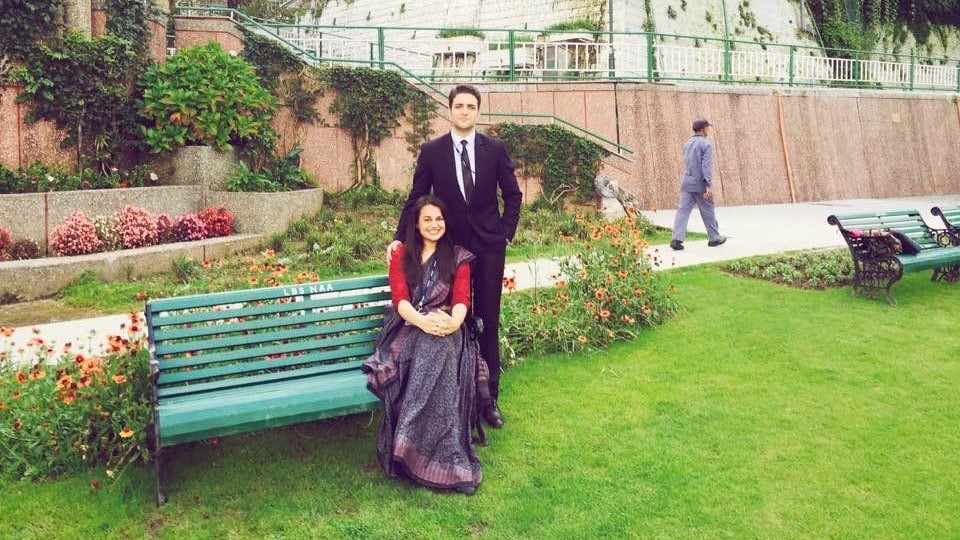This unlikely love story shows how India’s rigid social structure is evolving
Top rank wasn’t the only thing Athar Aamir Khan lost to Tina Dabi when they each completed India’s Union Public Service Commission (UPSC) exam last year. He also handed over his heart.


Top rank wasn’t the only thing Athar Aamir Khan lost to Tina Dabi when they each completed India’s Union Public Service Commission (UPSC) exam last year. He also handed over his heart.
A year after the exam and six months after the duo first met in person at the felicitation ceremony (where the government congratulates high achievers), Khanan, who took second place on the test, is preparing to tie the knot with Dabi. Both are in their early 20s, and currently undergoing training at the Lal Bahadur Shastri National Academy for Administration in Mussoorie. The couple has yet to set a date, but Dabi says an engagement is coming “very soon.”
“We met in the morning, and by evening Aamir was at my door,” Dabi told the Times of India. “Uske liye pehli nazar mein pyaar ho gaya (For him, it was love at first sight).”
If that seems like the perfect meet-cute for two successful young adults, there’s one important hiccup: Dabi is a Hindu from the Dalit community, the lowest caste in India’s hierarchical structure. Khan belongs to a Muslim family. Typically, Hindus and Muslims do not marry in India because of cultural and religious differences.
Since publicly admitting their relationship, the couple has received a slew of congratulatory messages on social media, but also some hate. “It’s as if I have committed a crime by falling in love with someone who is not the same religion or caste as me,” Dabi told the Times of India. “I then wonder if I should be active on social media and confront such stuff. But then I tell myself that I don’t have to prove anything to anyone.
“As any freethinking independent woman I am entitled to certain choices. I am very happy with my choice and so is Aamir. Our parents are happy, too.”
That’s a rare stroke of luck. While some pockets of Indian society are becoming more accepting of Hindu-Muslim relationships, most still have a ways to go. Many couples in the country have parted ways because their families disapproved of mixed relationships. In a Medium post published in March, Pune-based documentary filmmaker Vaishnavi Suresh detailed her family and friends’ reaction to her Muslim boyfriend:
I tell them he’s Muslim and they react saying “Ohhhhh. Okay” before proceeding to ask me more about him. However, that long “Ohhhhh,” which would’ve been absent if he was a Christian, Hindu, Jain or for that matter even a girl, is what bothers me. This unconscious we-are-cool-with-Muslims-until-they-become-a-part-of-our-family is something I come across more often than I should, particularly in (apparently) well educated, middle class Indian Hindu families…
…To sum it up, we aren’t the couple in Mani Ratnam’s Bombay who are so deeply in love but cannot be together because of our religion. We are just that couple that has only-in-good-spirit Love Jihad jokes passed on us. The couple that is reminded time and again that I would need to convert if we ever plan on getting married.
Essays like Suresh’s, and stories like Dabi and Khan’s, may not make a difference overnight. But they can go a long way toward reducing Indians’ with diverse relationships. After all, nothing teaches unfettered acceptance like true love.